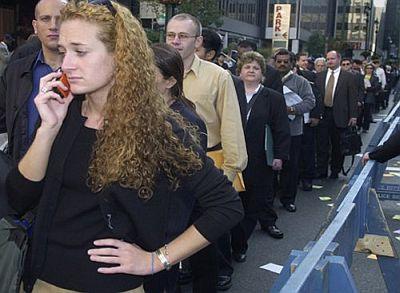UNEMPLOYMENT – Do People Need Jobs Or Do People Need Comfort Zones?

"Those who would give up Essential Liberty to purchase a little Temporary Safety, deserve neither Liberty nor Safety." Benjamin Franklin
Unemployment
Unemployment (or joblessness), occurs when people are without jobs and they have actively sought work within the past four weeks. The unemployment rate is a measure of the prevalence of unemployment and it is calculated as a percentage by dividing the number of unemployed individuals by all individuals currently in the labor force. During periods of recession, an economy usually experiences a relatively high unemployment rate. In a 2011 news story, BusinessWeek reported, “More than 200 million people globally are out of work, a record high, as almost two-thirds of advanced economies and half of developing countries are experiencing a slowdown in employment growth”.
There remains considerable theoretical debate regarding the causes, consequences and solutions for unemployment. Classical economics, neoclassical economics, and the Austrian School of economics argue that market mechanisms are reliable means of resolving unemployment. These theories argue against interventions imposed on the labour market from the outside, such as unionization, minimum wage laws, taxes, and other regulations that they claim discourage the hiring of workers. Keynesian economics emphasizes the cyclical nature of unemployment and recommends interventions it claims will reduce unemployment during recessions. This theory focuses on recurrent supply shocks that suddenly reduce aggregate demand for goods and services and thus reduce demand for workers. Keynesian models recommend government interventions designed to increase demand for workers; these can include financial stimuli, publicly funded job creation, and expansionist monetary policies. Georgists, half a century before Keynes, also noted the cyclical nature but focused on the role of speculation in land which pushes up economic rent. Economic activity cannot be sustained in the rent bubble because rent must be paid mostly from wages (yield of labor) as well as from interest (yield of capital). Once the speculation is wrung out of system the cycle of land speculation begins again. Henry George therefore advocated the taxation of land values (Single Tax) to stop land speculation and in order to eliminate taxation of labor and capital. George opposed land nationalization and Marx’s theories. Marxism focuses on the relations between the owners and the workers, whom, it claims, the owners pit against one another in a constant struggle for jobs and higher wages. The unemployment produced by this struggle is said to benefit the system by reducing wage costs for the owners. For Marxists the causes of and solutions to unemployment require abolishing capitalism and shifting to socialism or communism.
A different perspective to consider.


